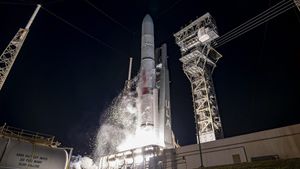RIYADH - The UN's COP16 conference on drought management wrapped up early Saturday morning without any agreement among the 197 participating nations to establish legally binding protocols for addressing the growing global drought crisis. This 12-day meeting, held in Saudi Arabia, fell short of ambitious hopes as delegates debated various approaches to tackle what many scientists are calling one of the planet’s most pressing environmental disasters.
During the closing session, Ibrahim Thiaw, the Executive Secretary of the United Nations Convention to Combat Desertification (UNCCD), acknowledged the hard-fought discussions, which ended significantly later than scheduled, saying, “Parties need more time to agree on what’s the best way forward to address the critically important issue of drought.” The gathering was intended to generate strong mandates requiring nations to fund early warning systems and establish resilient infrastructure, particularly for the most affected areas like Africa.
Despite the serious threats from drought, which the UNCCD reported impacts over 300 billion dollars annually due to environmental degradation, governments could not unify. Countries like the United States and members of the European Union opposed the binding protocol strongly pushed by African representatives, who lamented the inadequacy of alternative non-binding frameworks.
An anonymous delegate from Africa expressed disappointment, stating, “It’s the first time I’ve seen Africa so united, with a strong united front, with respect to the drought protocol.” Such unity underscored the depth of concern about the impacts of drought on the African continent, where the stakes are perceived as increasingly desperate.
The conference also underscored the dire situation projected by scientists: nearly five billion people could face severe drought conditions by the end of the century without decisive action on climate change and drought mitigation strategies. Warnings indicated urgent changes are necessary to avert food insecurity, migration, and large-scale ecological damage.
The lack of agreement at COP16 was reflective of similar impasses seen at previous international meetings focusing on climate and biodiversity, raising fears among vulnerable nations about the increasingly severe impacts of these climatic events. Jes Weigelt from TMG Research has been following the talks closely, and he warned, “We are losing precious time,” stressing the immediacy of the drought crisis.
While the summit did not reach consensus on handling drought mechanisms, it did progress on several other fronts, including the establishment of official groups for Indigenous peoples and local communities. This development aims to incorporate their voices early during the negotiation processes, which had been lacking previously.
Saudi Arabia, which began the Riyadh conference with pledges of over $2 billion to support global drought resilience, facilitated the formation of the Riyadh Global Drought Resilience Partnership. This partnership garnered over $12 billion pledged toward combatting drought effects, with the Arab Coordination Group alone promising $10 billion by 2030. These pledges are aimed at best supporting the most vulnerable countries, yet they represent less than 0.5% of the $2.6 trillion the UNCCD estimates is needed to fully tackle drought and land degradation.
The disparity between the pledged funds and actual needed resources has highlighted the urgency of immediate action against drought and desertification. “Droughts fuelled by human destruction of the environment cost the world more than $300 billion each year,” the UN warned, underlining the immense economic burden of neglecting this issue.
Despite the challenges, the conference's limitations signify just how interlinked climate challenges have become. Ibrahim Thiaw pointed out how this summit elevated discussions on land and drought to intersect with wider issues like migration and food security, sections of human existence threading through every corner of society now threatened by environmental change.
Disappointment echoed as many delegates left Riyadh still facing the reality of climate change without enhanced international cooperation. With future discussions now pushed to COP17 scheduled for 2026, many experts remain concerned about the pace at which effective solutions will emerge. While some express hope for building coalitions under the UNCCD framework, the time for action is undoubtedly thin.
This breakdown of negotiations at COP16 reflects the growing frustration of particularly vulnerable nations with developed countries’ hesitance to commit to stronger, binding agreements to protect populations at high risk from the looming drought disaster. Without more effective coordination, the world risks deepening calamities as drought continues to threaten millions globally.



